
After enduring the entirety of Comfort Farms, I find myself confused by some of the rituals and routines on the farm. For one, the food chain supply is hard to grasp. Yes, all the food grown by those living there is for their use. But what happens to the excess seems to be decided upon by each individual there. I am not saying that is correct, but Kellam does such a lousy job of structuring his film and engrossing the audience into the nitty-gritty of the farm’s operations (again, after taking forever to even get to the farm) that they will leave with little more than knowing that Comfort Farms exist; presuming they weren’t already aware of such.
Then there is the ritualistic slaughter of the animals. The veterans talk about how getting to know the animals and caring for them, respecting them leads to “humane slaughter.” Yes, the argument that no slaughter is humane receives a passing mention. But those bonding moments are not observed, so this is a tenuous idea, at best, that the movie is grasping toward. Plus, were there ever, or are there now, veterans at Comfort Farms who could handle the daily structured life, the early mornings, and backbreaking work of growing crops but could not kill the livestock? Who the heck knows? Comfort Farms is the pure distillation of superficial.
Kellam’s listless, insipid direction helps none of this. The camera during the interviews is far too close to the subjects, giving off an uncomfortable vibe throughout the entire film. Sometimes, the person being interviewed is not even centered. Now, this wouldn’t be a problem if it weren’t for the fact that most of the people are in the middle of the frame. Why aren’t this and that person? There is no stylistic reason that I could figure out for it.
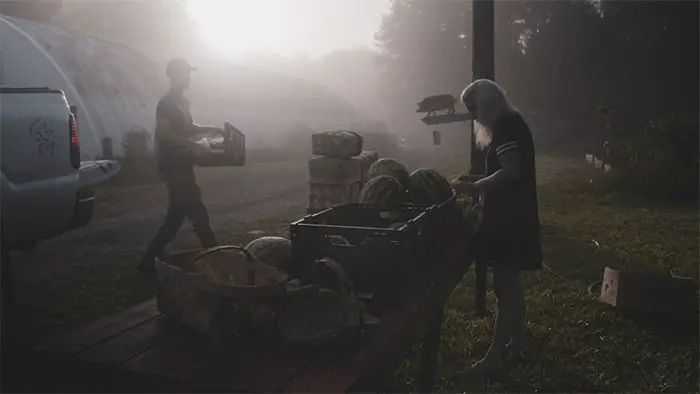
“…pacing is sluggish, the directing is abysmal…”
It is simply sloppy filmmaking on the part of the director. Imagine if the unusual and awkward camera choices of Tom Hooper (worst director of all time, bar none) were brought to a documentary. That strange, off-putting, senseless style that confuses the audience rather than logically tells a narrative visually abounds in spades in Comfort Farms.
I think the most frustrating thing about the whole production is just how avoidable many of the issues are. Re-edit the film so that the 3-5 minute interview segment comes right after the opening title, which is set to war footage and the slaughter of a pig on the farm. Then introduce each main interviewee doing a chore on the farm. Bam! Context for the farm and who everyone is right away. Then all the interviews and flow of the narrative, such as it is, continue as currently presented. Even with the awkward camera framing and pacing issues, this small change would add some much-needed weight to certain things that get brought up earlier versus how it currently stands.
Comfort Farms is a bad movie. Its pacing is sluggish, the directing is abysmal, and it is barely about the titular place/ therapy program. Stories of veterans and what they endured are important to tell, but this is not the way to tell them. Audience members would be better served by talking to a veteran in real life, as it will be a better, more engaging time than attempting to experience this dull mess.
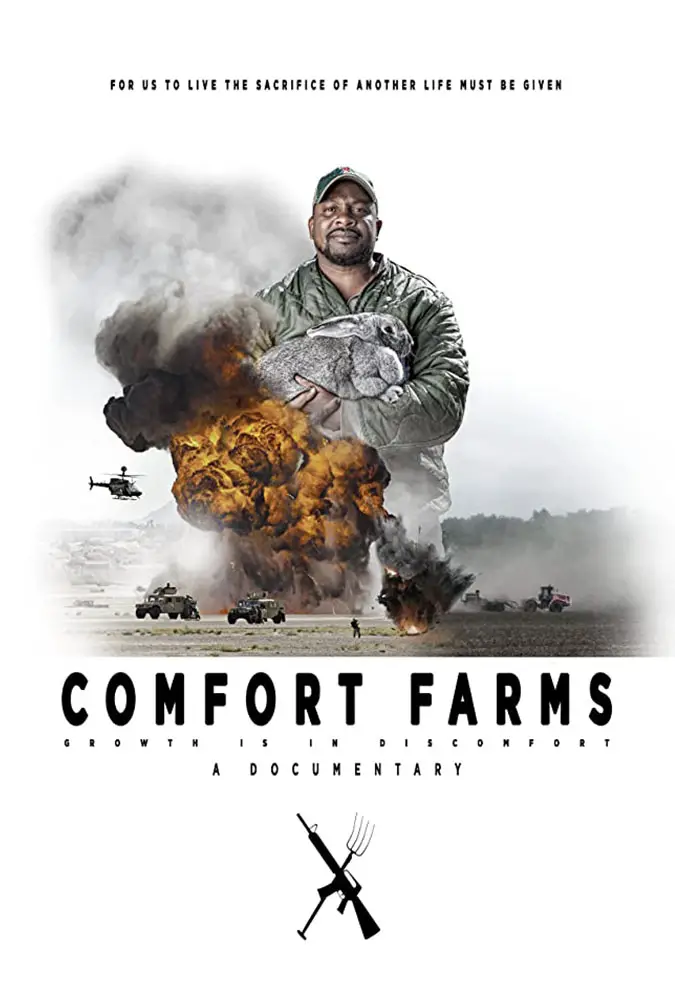
"…roughly the first 45% of the film does not focus on its own stated premise."
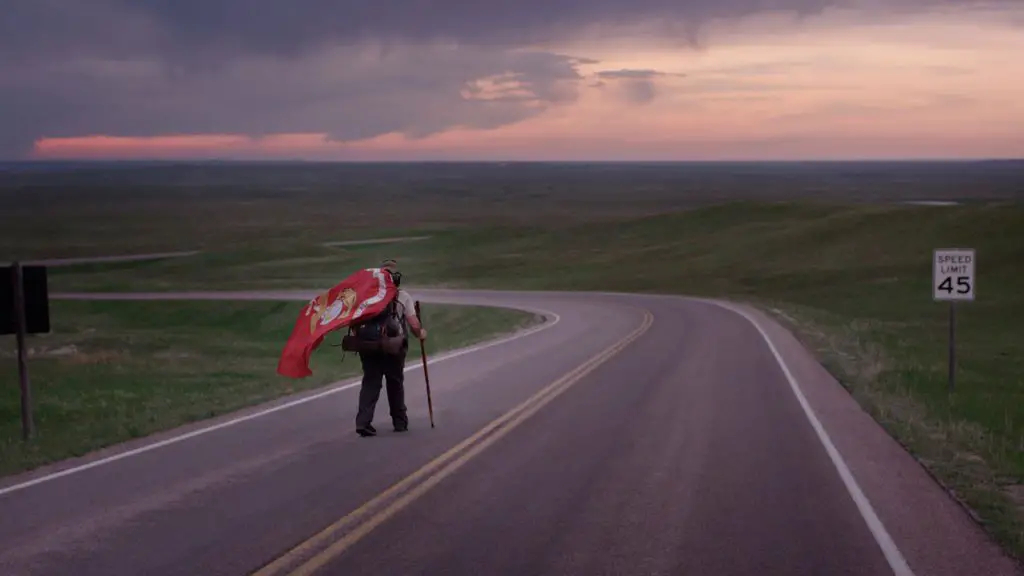
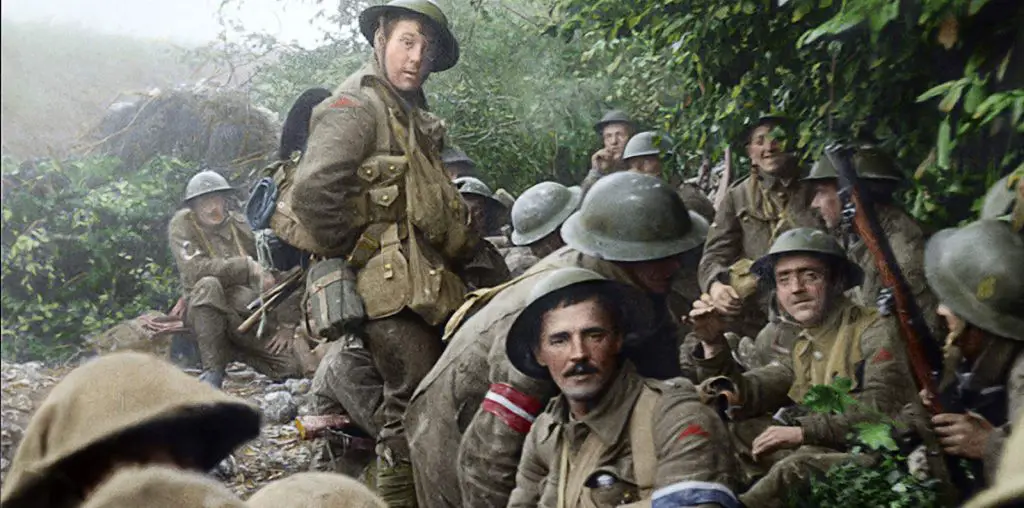
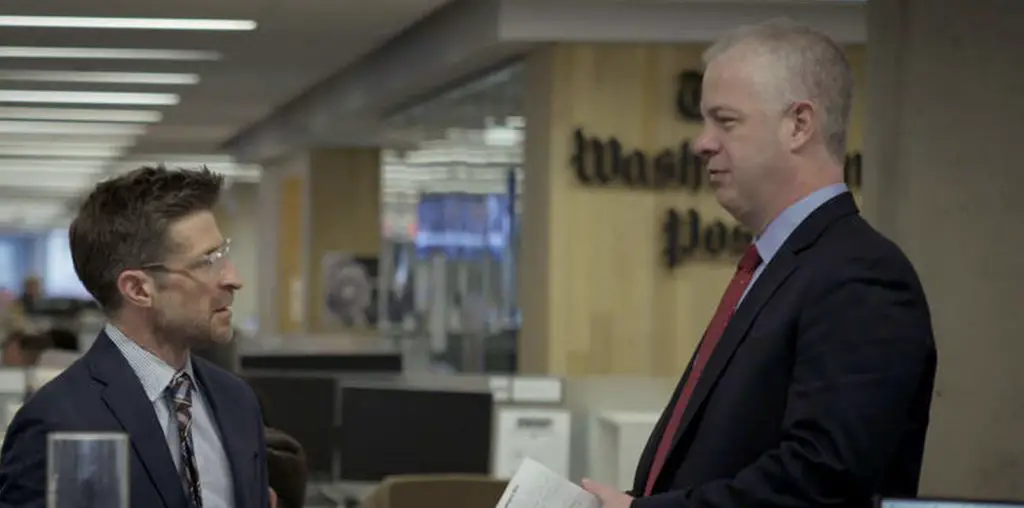
I normally wouldn’t respond to something like this, but I believe the nature of your review demands that I do. Right out of the gate, I’ll say that this is not meant to be an argument that you or anyone else is not entitled to an opinion. Or, for that matter, not entitled to think our film is objectively bad. Nor am I writing this to try and change your mind. And I’m certainly not writing this as an attack on you. You may be generally a great film critic. I don’t know. And I welcome critiques wholeheartedly. I take creative risks and expect some people to dislike what I do. Or, in your case, to outright hate it. So my problem is not that you think our film is bad or that you gave it a bad review. My problem is how disrespectfully you go about it. But please bear with me, by disrespectfully I don’t mean what might first come to mind…
By disrespectful, I don’t mean you were disrespectful by choosing to dislike the parts of the film you disliked or how roughly you went about pointing those things out (although I do believe you were a tad nasty when you needn’t have been.)
But by disrespectful I mean in these ways:
To me as a filmmaker and to the veterans.
First: You’re disrespectful to me as a filmmaker. Let me explain what I mean by that. Essentially, your review is disrespectful because it’s -ironically – quite sloppy. If you’re going to review something that takes the time and energy of a film, have the courtesy of doing it with a little respect – especially something that deals with a topic like suicide. I’m not trying to play that card and say the film deserves special passes because veterans are in it. For all I know you are a veteran. I’m simply saying it makes your sloppiness a little more grievous. Again, it’s fine that you didn’t like the film. It’s fine that you think it was objectively bad. It’s fine that your language is harsh and blunt. That’s not my gripe. Those things are not what I’m referring to as disrespectful.
But these things are:
To begin with there are a number of things in your review that are just factually wrong. You can of course make the argument that it was my sloppy filmmaking that made these facts unclear. But I find that hard to believe when nearly 100% of the people it’s been test-screened for picked up on all of these things with no trouble. For example, where did you get the idea that the food slaughtered on the farm is only for their own use? It’s absolutely not. It’s mentioned over and over that the food is grown and raised to support the local community. And what in the world is an Air Ranger? You highlight this quote in your review:
“…in 2014, former Air Ranger Jon Jackson hit upon the idea to use agriculture farming…to help veterans maintain a structured routine…”
Where in the world did I say or emphasize that? …And I could go on and on.
You suggest my choices were in fact ignorant or sloppy mistakes. You say the film is “purportedly” about Comfort Farms, suggesting the film is not even about what it’s supposed to be about. Since when did a film have to be only about it’s title? Or for that matter how often is every thread and essence captured in a logline? It’s all over the press notes that Comfort Farms is not just about Comfort Farms or it’s founder, that it’s broader than that. It’s also all over the notes that this was never intended to be an information piece about the workings of the farm. It seems like you reviewed the movie you expected to see, instead of taking the time to review the movie the way it was made. You say: “But, Kellam gets too wrapped up in chronicling each story, as he puts it, in their own words. This means that the film never looks at the big picture of all veterans. It narrowly focuses on the people that the Comfort Farms therapy is helping. But what of the veterans that this sort of outlet does not help? What makes people join the military, to begin with? None of these questions are explored:.”
So what? That’s not what the movie is about, who gave you the idea it was?
If you want to get strictly technical, why does it matter that the farm comes in two-thirds of the way into the film if the farm isn’t the entire essence of what the film’s about? Is it essential to the overall plot, yeah. But it’s not THE plot. I understand quite clearly the three act structure and all of its workings. I studied it. I’ve taught it. Does this film perfectly fit it? I’d say no. But not for the reasons you suggest. And certainty not because of what you suggest. Jon and the farm are not meant to be the break into act two or the inciting incident or whatever plot point you’re looking for. I went through a number of edits before I decided to structure the film the way you saw it. Again that doesn’t justify my decision or necessarily make it a good one. And must you like it? No. Of course not. But was it done sloppily without purpose or intent? Absolutely not. The same can be said for my framing and lens selections for the interviews. Is it unique and imposing? Yes. Will some people dislike the choices? Of course some will as you’ve demonstrated. But again my choices were made with purpose and intent with respect to how I saw the theme. Far from the sloppy accidents you suggest. Does that make them good choices? Maybe or maybe not. But it certainly makes them the opposite of “sloppy.” So if I’m a bad filmmaker, that’s fine, but please give me the credit of being bad by purpose, not by accident.
Second and perhaps most importantly: You’re disrespectful of the veterans. Toward the end of your review you say something like “next time go talk to some real veterans.” What makes you think these aren’t real veterans? I would say a combat infantryman who served 1944-46 in the Philippines would qualify as a real veteran. I’d also think 6 tours in the Middle East finishing up with the 75th Ranger regiment would too. As would several run-ins with IEDs while deployed with the 82nd Airborne. And on and on. Many “real” veterans never see a day of combat. What makes a veteran a real veteran and why would you speak so judgmentally?
Over all I just don’t get it. But I guess that’s fair. You don’t get the film. I don’t get your review. You say it’s the “pure distillation of superficial,” I say the same about your review. But please, with the next filmmaker, and I say this with all due respect, don’t be so rude and sloppy.